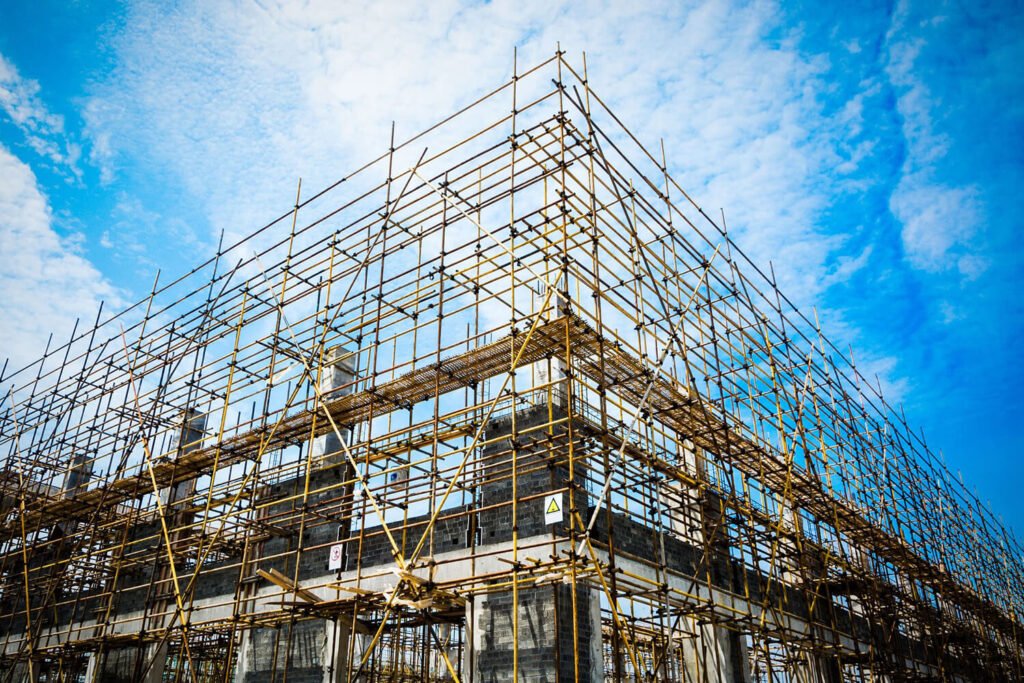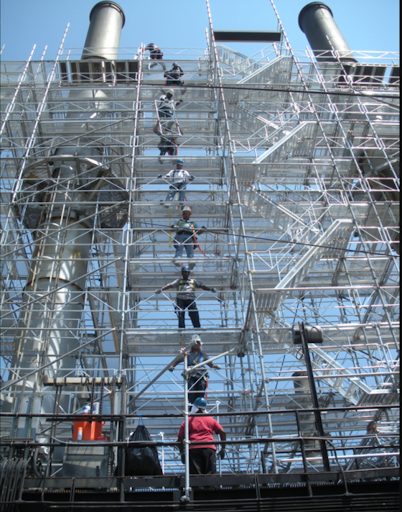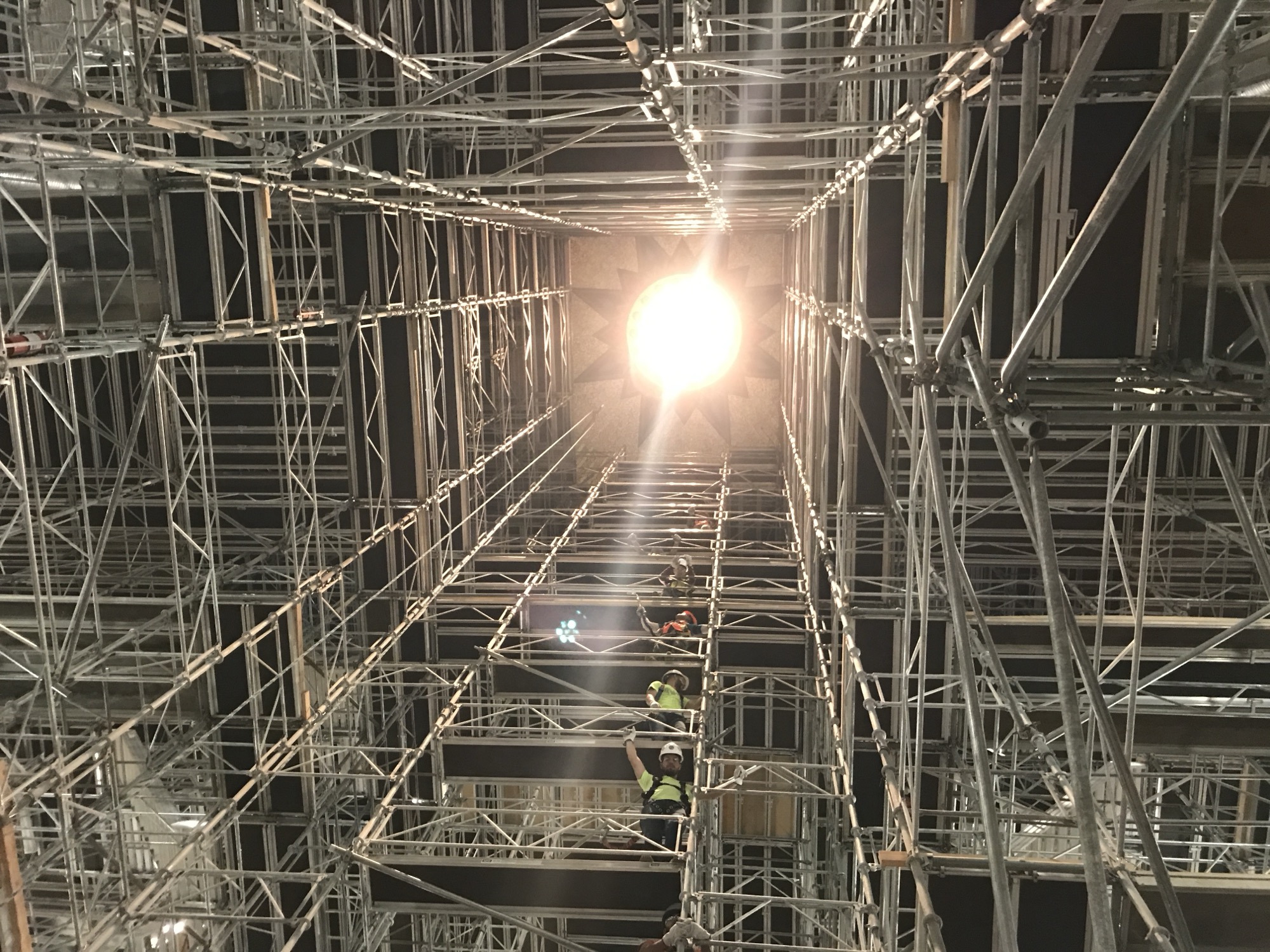Get the Best Scaffolding Cobham Services for Your Building Projects
Get the Best Scaffolding Cobham Services for Your Building Projects
Blog Article
Exploring the Various Kinds Of Scaffolding Made Use Of in Construction Projects
The construction industry depends heavily on various kinds of scaffolding to meet details job needs, each offering distinct benefits and applications. Conventional structure scaffolding supplies a sturdy structure for general tasks, while put on hold scaffolding is necessary for work with skyscraper frameworks. Other choices, such as system and rolling scaffolding, satisfy effectiveness and movement, specifically. The cantilever variant shows very useful in metropolitan settings where room is constrained. Comprehending the subtleties of these scaffolding types is vital for enhancing safety and security and performance on building sites, motivating a closer exam of their unique attributes and applications.

Standard Structure Scaffolding
Traditional frame scaffolding is just one of the most commonly made use of methods in the construction sector because of its toughness and adaptability. This system contains straight and upright structures that are constructed to create a stable system for materials and workers. The main elements include upright posts, straight journals, and diagonal braces, which with each other give a strong framework that can support significant tons.
One of the vital advantages of typical framework scaffolding is its flexibility to various building and construction jobs, varying from domestic buildings to huge business structures. The modular style permits easy assembly and disassembly, making it reliable for both lasting and temporary projects. Furthermore, the system can be tailored in elevation and width, accommodating different structure designs and website conditions.
Safety and security is paramount in scaffolding applications, and standard frame systems are equipped with guardrails and toe boards to stop falls and make certain employee protection. Normal examinations and adherence to safety and security regulations are essential in preserving the honesty of the scaffold (Scaffolding). On the whole, typical structure scaffolding continues to be a fundamental selection in the building industry, providing a dependable platform for labor and enhancing total task effectiveness

Suspended Scaffolding
Put on hold scaffolding uses a distinct service for construction tasks that need access to elevated surfaces, particularly in circumstances where typical structure scaffolding may be impractical. This sort of scaffolding is typically suspended from the roof or top degrees of a structure, making use of a system of ropes, systems, and wheels to develop a functioning space that can be adjusted to different heights.
Among the key benefits of put on hold scaffolding is its versatility. It can be easily rearranged or lowered to fit modifications in building and construction requirements, making it perfect for tasks such as window installation, frontage work, and upkeep on skyscrapers. Additionally, the minimal footprint of suspended scaffolding enables better usage of ground room in metropolitan atmospheres, where area is commonly limited.
Safety is a crucial consideration in the use of put on hold scaffolding. In general, put on hold scaffolding gives a reliable and effective solution for accessing hard-to-reach areas in numerous construction situations, boosting both productivity and security on site.
System Scaffolding
System scaffolding, typically pertained to as a modern-day option in the scaffolding industry, contains pre-engineered parts that can be swiftly put together and why not try here adjusted for different construction projects. Scaffolding. This kind of scaffolding is defined by its modular layout, which enables for flexibility and performance on work sites, accommodating structural requirements and different heights
Usually made from high-strength steel or light weight aluminum, system scaffolding provides boosted longevity and stability. The parts consist of vertical posts, straight journals, and angled dental braces, which adjoin safely, ensuring a robust framework. The layout typically includes standard fittings, streamlining assembly and disassembly processes, thereby lowering labor time and expenses.

Rolling Scaffolding
Moving scaffolding is a versatile choice to typical look at these guys fixed scaffolding, made for movement and simplicity of use on construction sites. This kind of scaffolding includes a system supported by frames with wheels, enabling workers to easily move it as required. The mobility function significantly improves productivity, as it decreases downtime linked with putting together and taking apart repaired scaffolding.
Typically created from light-weight materials such as aluminum or steel, rolling scaffolding provides a strong yet mobile solution for tasks requiring regular repositioning - Scaffolding. It is particularly helpful in tasks such as paint, drywall installment, and electric work, where access to different heights and locations is necessary
Safety and security is extremely important in rolling scaffolding design, with attributes such as securing wheels to stop unplanned motion when in use, and guardrails to shield workers from drops. Additionally, numerous designs are adjustable in height, suiting numerous project needs.
Cantilever Scaffolding

The design of cantilever scaffolding usually includes using braces or arms anchored to a building or framework, allowing the system to prolong outside securely. Safety and security is critical; thus, these scaffolds need to be engineered to endure ecological problems and various loads. Regular inspection and maintenance are essential to make sure structural stability and employee safety.
Cantilever scaffolding is preferred for its flexibility and reliable use of space, making it a prominent choice in city settings where area restraints are usual. It assists in less complicated accessibility to high altitudes, inevitably contributing to the general performance of building tasks. As with all scaffolding types, appropriate training and adherence to safety and security criteria are critical for workers making use of cantilever scaffolding.
Final Thought
Typical frame scaffolding provides security, while suspended scaffolding supplies adaptability for elevated jobs. System scaffolding helps with fast assembly, and rolling scaffolding boosts wheelchair for varying job atmospheres.
Traditional structure scaffolding offers a sturdy foundation for basic tasks, while put on hold scaffolding is vital for job on basics high-rise frameworks.Moving scaffolding is a versatile choice to conventional fixed scaffolding, created for mobility and simplicity of usage on construction websites. As with all scaffolding kinds, proper training and adherence to security criteria are vital for employees utilizing cantilever scaffolding.
Typical structure scaffolding supplies security, while put on hold scaffolding provides flexibility for elevated jobs. System scaffolding helps with fast assembly, and rolling scaffolding improves mobility for varying job atmospheres.
Report this page